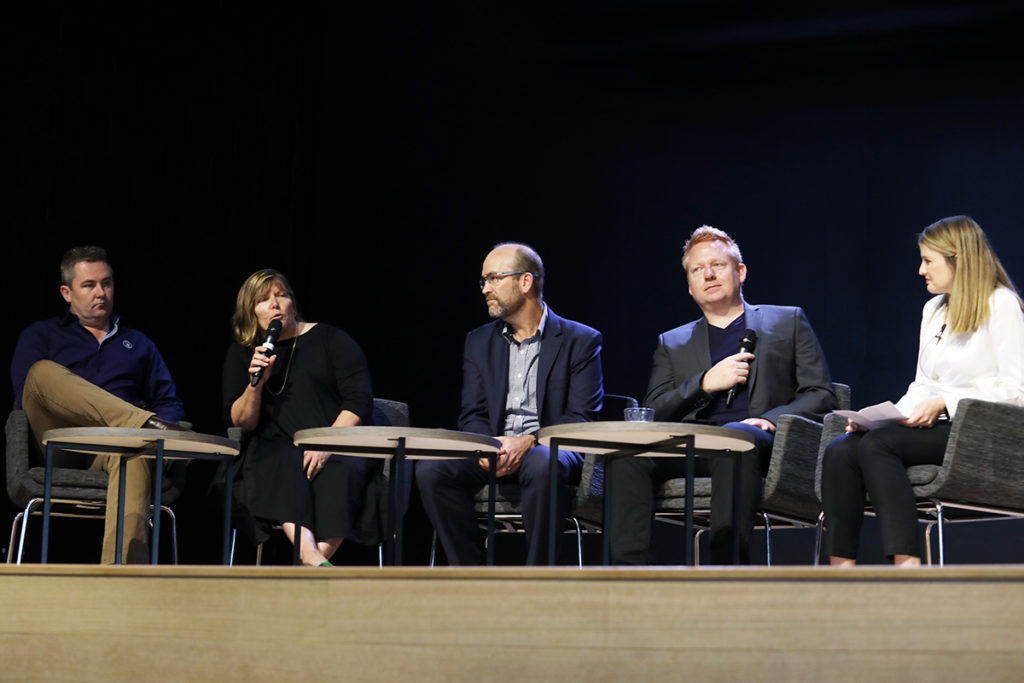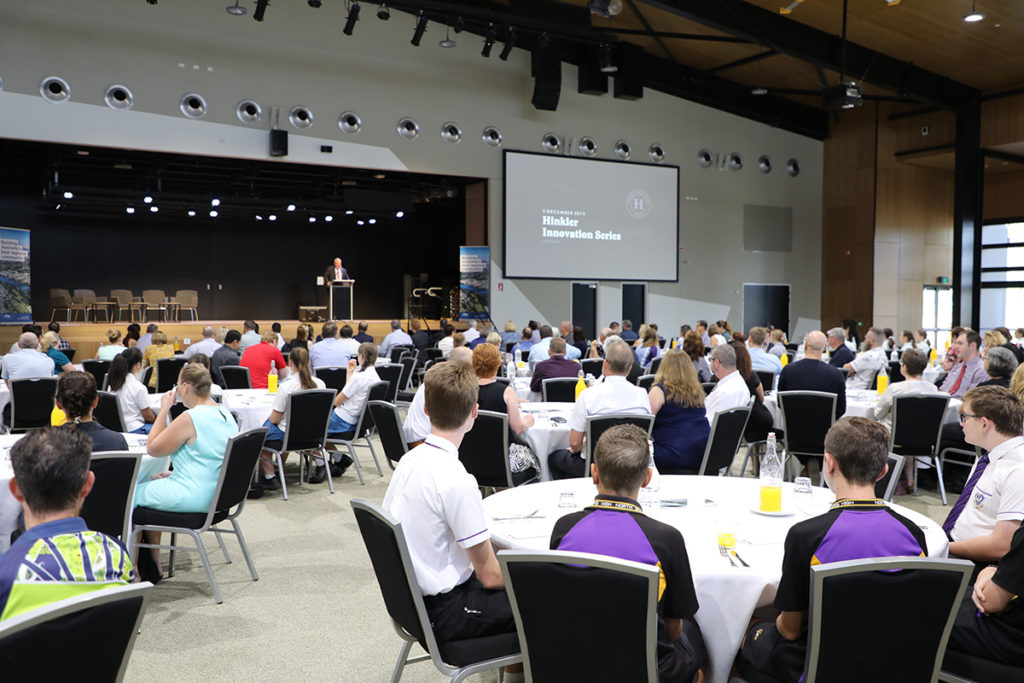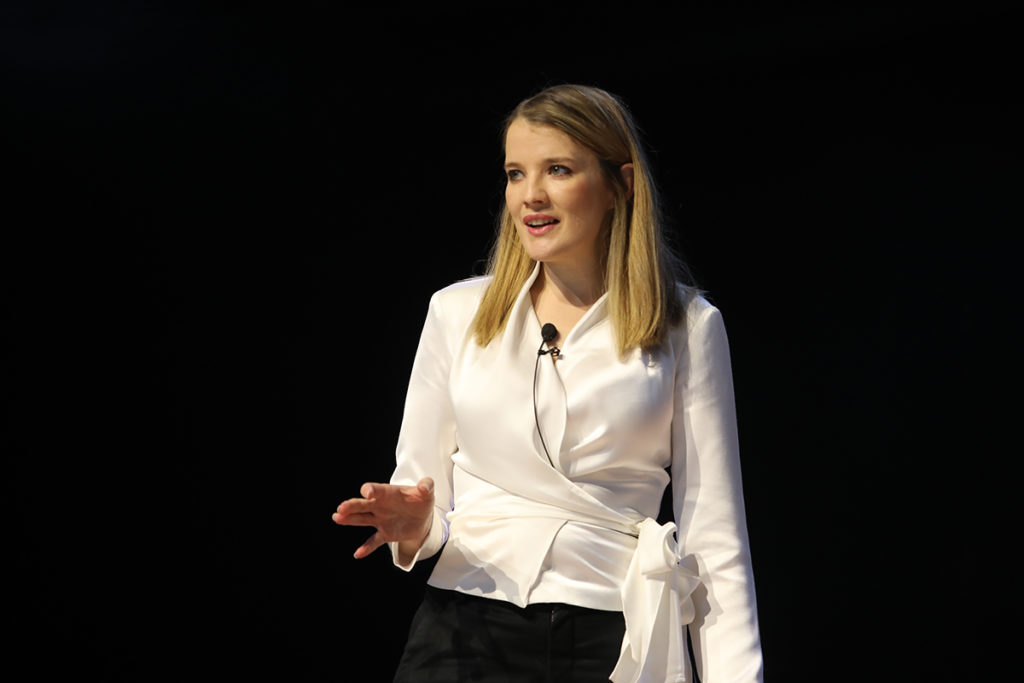
The State of the Region address at the Hinkler Innovation Series breakfast contained good news about the economic outlook through new opportunities and diversification.
An entree for the 220 attendees was provided in the form of a regional economic overview by Mayor Jack Dempsey.
“Improved regional unemployment figures, and especially in the area of youth and aged unemployment, is testament to the range of job creation initiatives being developed across the region,” said the Mayor.
“With over $4.2 billion of local investment planned for delivery over the next five years, this will see over 3000 new jobs created in our community for future job seekers.
“A newly compiled Council prospectus identifies opportunities that Council sees as the key drivers of the future growth of the Bundaberg Region,” said the Mayor.
“We are positioned for expansion in industries that include ag-tech, bio-products, advanced food and beverage manufacturing and defence supply.”

Mayor Dempsey said in the current financial year Council was investing $110 million in capital projects with a focus on upgrades to water infrastructure, roads and bridges and community recreation facilities.
Bundaberg’s Chief Entrepreneur in Residence, Michael Norton said he had spoken at similar functions around the world, primarily in the United States and Canada.
“I know I am learning things here in Bundaberg that I will be able to share around the world just as I am sharing the learning experiences I have gained from other locations.”
Mr Norton listed empathy as the key ingredient that should be driving innovators and entrepreneurs.
He said an ability for stakeholders to combine and to share empathy when considering a problem was the key to finding a solution.
He said Bundaberg had the talent and the infrastructure to create the groups essential to driving entrepreneurial outcomes.
“Frequency is a key and, when we can get those stakeholders together frequently enough, that is when some magic happens. If we can get a wide variety of people in a small space often enough they discover what they have in common and importantly, what they have in contrast.”
He said it was this collision of ideas that promoted exceptional outcomes.
Principal of Bundaberg State High School, Karen McCord, said that each year $55 million was invested in the six district high schools exclusive of private or primary schools.
“Spending that kind of money we need to ensure that we build capacity and sustainability and that our kids are the best in the world when they get to pursue the careers they choose to take.”

Ms McCord informed the audience that the current generation of school attendees are the first generation to have only known technology.
She said it was important to know students and to teach to their strengths and ensure they are engaged in learning.
“Technology plays a major role in modern teaching with students able to log in from home to gain their lesson content. We are also mindful that about 20% of our students do not have home access to the internet.”
She said schools now tended to use “blended” learning which involved a mix of traditional teaching and learning strategies coupled with the use of technology.
Keynote speaker Felicity Furey spoke of the challenges and perceptions of young women pursuing courses that may appear to be male dominated.
Ms Furey, a qualified engineer, said she had scoffed when it had been suggested to her that she should consider engineering as a profession.
“Quite simply I didn’t believe I had the intellect to pursue engineering,” she said.
Since achieving a professional standing as an engineer in road design she was interested in exploring means of promoting a positive view of engineering to young women.

“I think it boils down to mindset. A positive mindset can power innovation, creativity and new ideas.
She said Bert Hinkler was a prime example of someone with a positive mindset which allowed him to problem solve and develop new and innovative outcomes.
“I decided to take on an experiment to see if I could get young women to change their minds about considering engineering as a career and to increase the participation ratio which was running at just 10% women.
Felicity gained some corporate sponsorship for the experiment and was delighted that through seminars and workshops she was able to promote a conversion rate of 70% among women who had not considered engineering to be a viable career path.
Today’s event was the fourth in the Hinkler Innovation Series.
Others news: STEM ambassadors get taste for innovation







